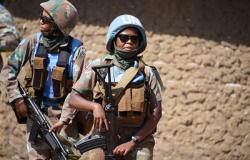
Global conflicts are becoming increasingly transnational and often involve non-state actors. These trends mirror the diffusion of power that has resulted from globalization and the erosion of liberal hegemony since the late 1990s and early 2000s. Though projections vary among scholars, the future international system is likely to involve a diversification of actors exerting influence in all policy spheres, including conflict-response and peace operations. The United Nations (UN) and other liberal actors, historically dominant in peace operations, must adapt to remain relevant in a future where their governance of operations, and the underlying liberal democratic goals on which they are based, can no longer be assumed. In light of this waning liberal international order, this paper examines the core lessons learned from the past 70 years of UN peace operations to infer what future UN peacekeeping might look like and what adaptations will be necessary for this new environment. In so doing, we prepare recommendations for a truly localized and contextualized approach to peace operations that is expansive, representative and non-directive, ultimately necessitating the UN and other liberal actors to adopt higher risk tolerance and relinquish exclusive control over conflict-response and peace.
Policy Implications
- The liberal democratic state can no longer be assumed as the end goal of peace operations, nor should it be.
- Incentivizing liberal reforms is not sustainable. External actors must support conflicting parties in non-directive ways. This will require higher risk tolerance from interveners, as long-term effectiveness will likely mean short-term efficiency losses.
- In a multi-order world, social contracts and domestic institutions may be based on different values than those of the liberal order. For international actors, this means compromising on what constitutes just and legitimate governance.
- Multi-order peace interventions will be multi-actor, with new partners from different orders. Coordination, policy coherence and mandate clarity will be essential, as top-down, liberal templates are abandoned and a comprehensive approach is embraced. This will require bureaucratic reforms to overcome the organizational constraints to such holistic, flexible and context-sensitive planning, resourcing and working.
- Multi-order peace interventions will be locally-led. International actors must holistically support cross-cutting civil society and social organizations, so that local partners are representative and legitimate, rather than convenient.
- Multi-order peace interventions will be international-local hybrids. Social and physical barriers between international and local actors must be reduced to enable local knowledge transfer, accountability, exchange and dialogue.
- Linear conceptions of causality are incongruent with the complex, relational and systemic nature of conflicts and peace interventions. Multi-order peace interventions will require complex understandings of effectiveness and change.
Image: MONUSCO Photos via Flickr (CC BY-SA 2.0)